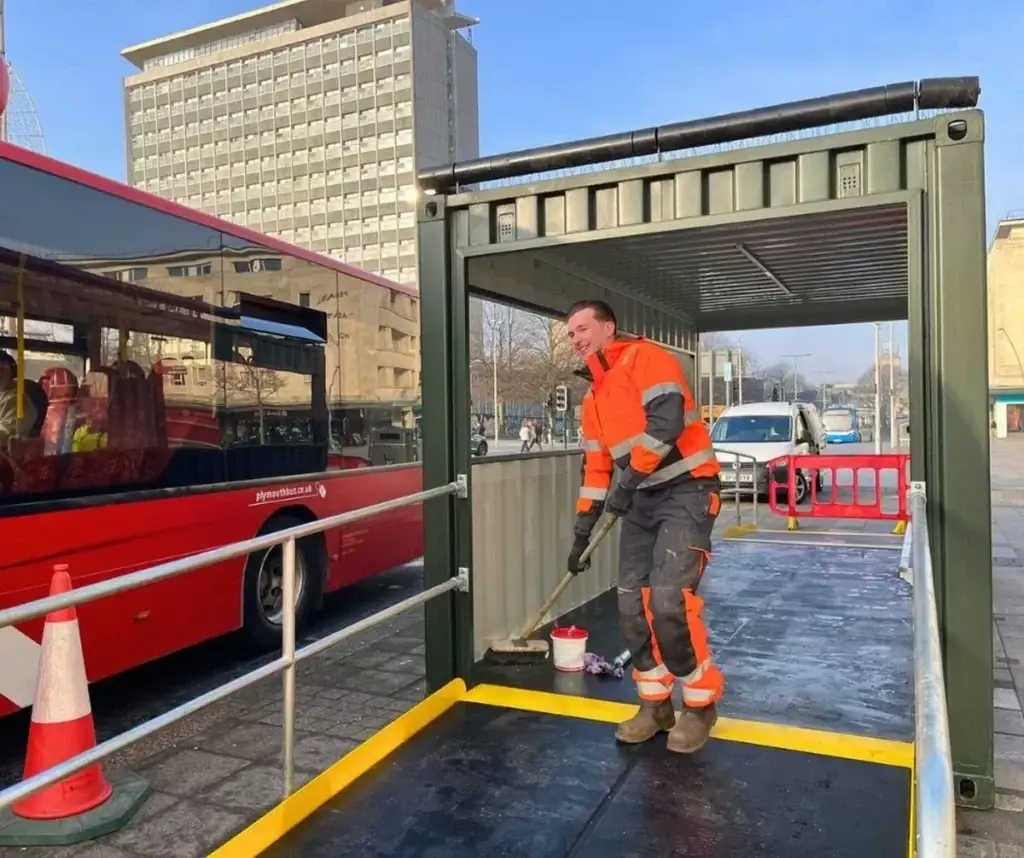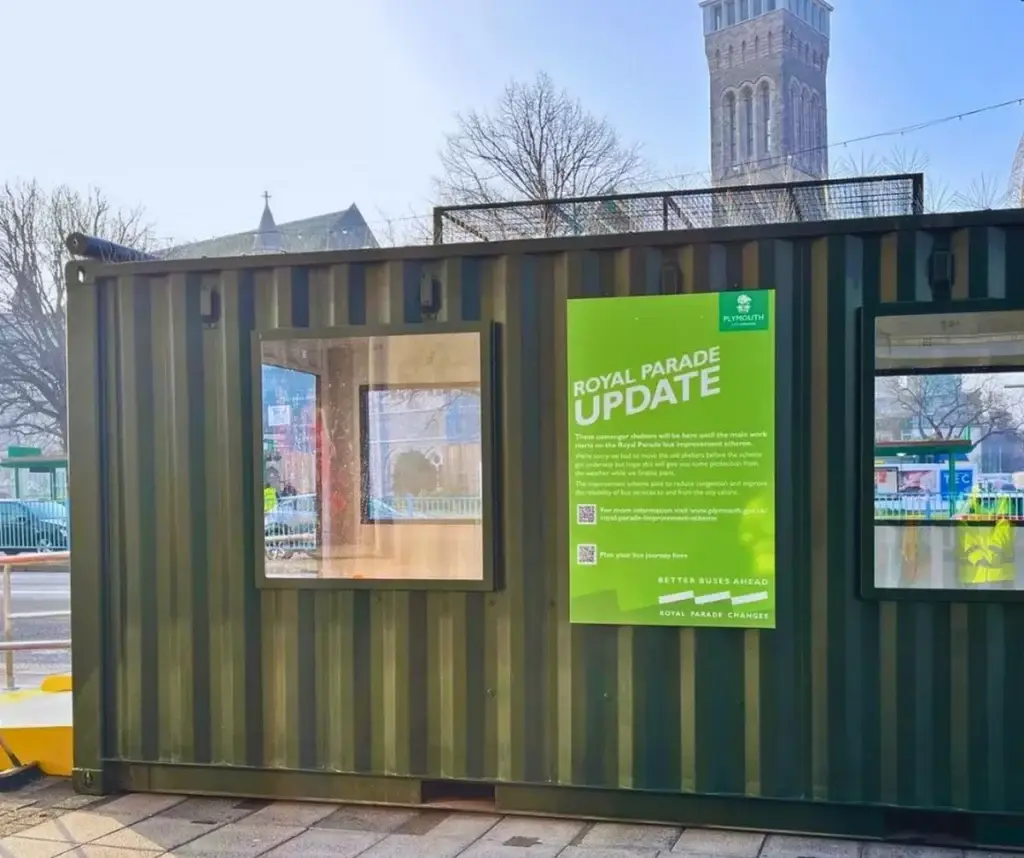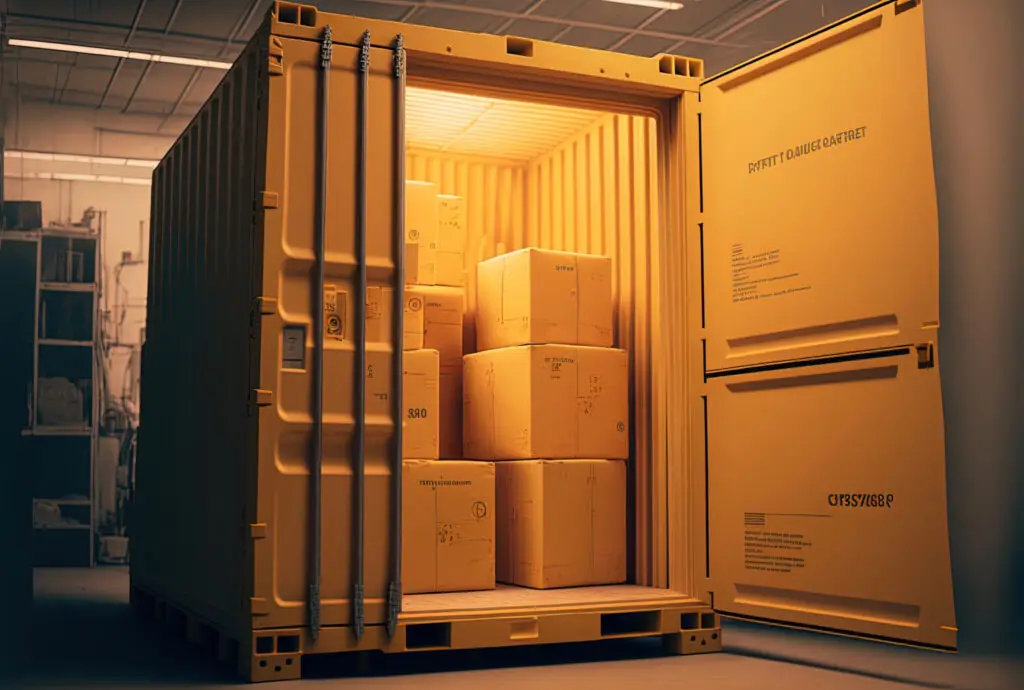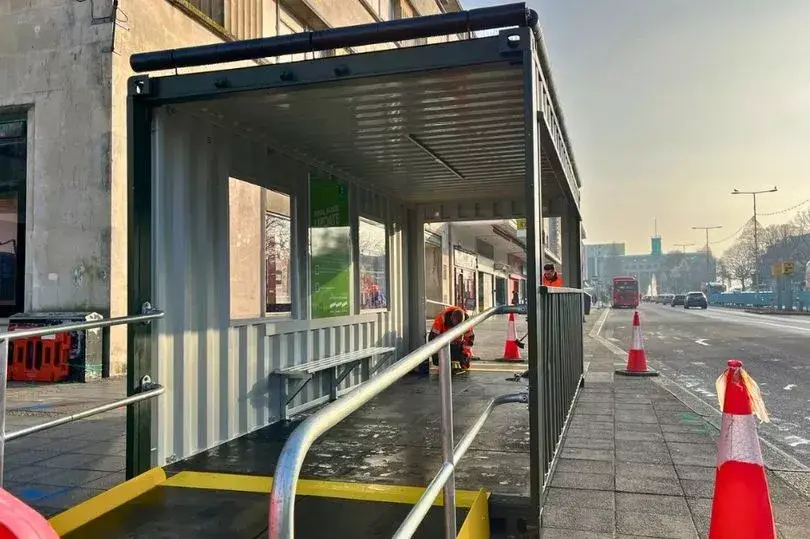Introduction
In an era where sustainability and creativity are at the forefront of urban planning, shipping containers are proving to be more than just vessels for global trade. Across the UK, these versatile steel structures are being repurposed into homes, cafes, offices, and now, thanks to an innovative project in Plymouth, bus stops. At Cubus Container, we’re excited to spotlight this groundbreaking initiative that aligns perfectly with our mission of showcasing the endless possibilities of shipping container conversions.
Plymouth’s Shipping Container Bus Stops: A New Urban Solution
As reported by Plymouth Herald, Plymouth City Council has embraced a bold approach to modernizing its public transport infrastructure by introducing shipping container bus stops. These eco-friendly, durable, and stylish shelters are part of a broader effort to improve the passenger experience while promoting sustainability. But what makes this project so special, and why are shipping containers the perfect fit for this role?
Why Shipping Containers?
Shipping containers have long been celebrated for their strength, adaptability, and sustainability. Here’s why they’re an ideal choice for bus stops:
- Durability and Weather Resistance
Built to withstand harsh marine environments, shipping containers are naturally suited to endure the UK’s unpredictable weather. From heavy rain to strong winds, these bus stops are designed to stand the test of time, providing passengers with reliable shelter year-round. - Sustainability
Repurposing shipping containers reduces the demand for new construction materials, minimizing the environmental footprint of urban development. By giving a second life to containers that might otherwise sit unused, Plymouth is contributing to a circular economy—a principle we at Cubus Container are passionate about. - Cost-Effectiveness
Compared to traditional construction methods, shipping container conversions are often more cost-effective. This allows councils like Plymouth to allocate resources to other critical areas while still delivering high-quality public amenities. - Customizability
One of the standout features of shipping containers is their versatility. They can be easily modified to include features like seating, lighting, digital information boards, and even green roofs. In Plymouth’s case, the bus stops have been designed with passenger comfort and accessibility in mind, offering a modern and welcoming space for commuters.

A Step Towards Smarter Cities
Plymouth’s shipping container bus stops are more than just a functional addition to the city’s infrastructure—they represent a shift towards smarter, more sustainable urban planning. By integrating modular, eco-friendly designs into public spaces, the city is setting an example for others to follow. These bus stops also align with broader goals of reducing carbon emissions and promoting public transport as a greener alternative to private vehicles.
The Aesthetic Appeal
Beyond their practical benefits, shipping container bus stops add a unique aesthetic to the urban landscape. With sleek, modern designs and the potential for creative customization, they can become iconic landmarks in their own right. Whether painted in vibrant colors, adorned with local artwork, or fitted with living walls, these bus stops have the potential to enhance the character of Plymouth’s streets.
Challenges and Opportunities
Of course, no innovation is without its challenges. Some residents may initially be skeptical of the unconventional use of shipping containers in public spaces, associating them more with industrial settings than urban amenities. However, as seen in other container-based projects around the world, public perception often shifts positively once the benefits—both practical and environmental—become clear.
Additionally, ongoing maintenance and ensuring accessibility for all passengers, including those with disabilities, will be key to the long-term success of this initiative. At Cubus Container, we believe that with the right design and planning, these challenges can be easily overcome, opening the door to even more creative uses of shipping containers in public infrastructure.
The Bigger Picture: Shipping Containers in Urban Design
Plymouth’s bus stops are just one example of how shipping containers are revolutionizing urban design. From pop-up markets to affordable housing, containers are proving to be a scalable, sustainable solution to modern challenges. At Cubus Container, we’re proud to be part of this movement, offering high-quality shipping containers and expert advice to businesses, councils, and individuals looking to bring their container-based visions to life.

Conclusion
The introduction of shipping container bus stops in Plymouth is a testament to the power of innovative thinking and sustainable design. Not only do these shelters provide practical benefits for commuters, but they also demonstrate how cities can reimagine public spaces in ways that are both environmentally responsible and visually striking.
At Cubus Container, we’re thrilled to see shipping containers being used in such creative ways, and we look forward to supporting more projects that push the boundaries of what’s possible. Whether you’re a council looking to modernize infrastructure or an entrepreneur with a bold idea, we’re here to help you turn your vision into reality.
For more information on shipping container conversions or to discuss your next project, contact the Cubus Container team today. Together, let’s build a more sustainable and innovative future—one container at a time.
Call to Action
Have you seen Plymouth’s new shipping container bus stops in action? Share your thoughts in the comments below, or get in touch with us to learn how shipping containers can transform your next project. Don’t forget to subscribe to the Cubus Container blog for more inspiring stories and expert insights into the world of container conversions.










